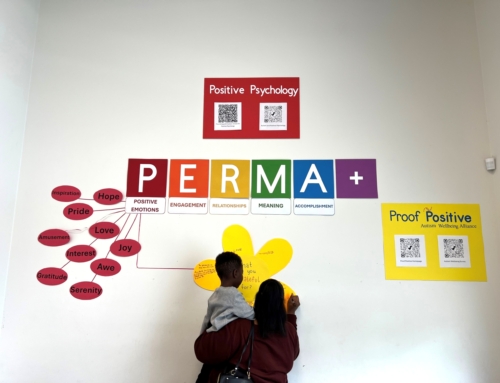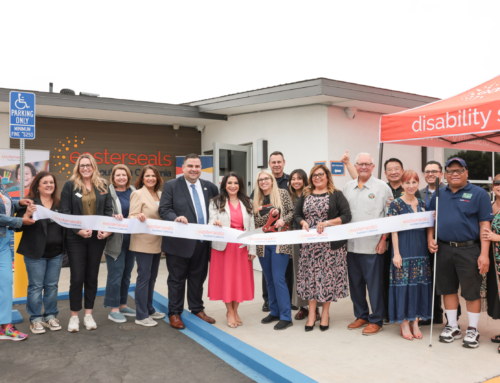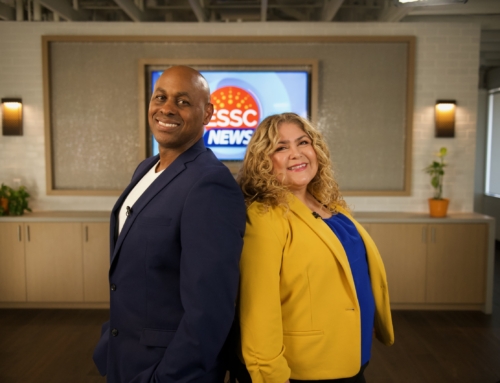By Vicki Greenleaf
While many consider the holiday season the “most wonderful time of the year,” others may feel overwhelmed during this time of year and these bustling times can be an even greater challenge for a child with autism spectrum disorder (ASD). The dazzle of decorations, smells of unfamiliar foods, music of the season, unfamiliar people and the noise of family gatherings can be daunting.
Says Dr. Paula Pompa-Craven, clinical psychologist and Chief Clinical Officer and VP of Autism Therapy Services for Easterseals Southern California (ESSC), which serves about 8,900 children with ASD, “One of the biggest reasons the holiday season is difficult is that it’s a time that’s different than any other time of the year. Our routines are broken and that’s challenging for kids with autism.”

So what can a parent to do to balance the excitement and memory-making of the holidays with the needs of a child with ASD?
Prepare. Speak with your child in advance. The clearer the expectations, the better. Detail what will be happening on a specific day and illustrate what the child can expect (and what you expect) with a visual calendar, social story or through role play. Explains Dr. Pompa-Craven, “Tell the child, ‘So on Thursday we’re going to Grandma’s house and, after that, we’re going to see your other Grandma.’ Then on the calendar, incorporate photos of those two houses and/or grandmothers.” Include other photos of relatives, foods that will be served, etc.
Manage expectations. Conversely, adult expectations are equally important … including your own. We frequently see extended family around the holidays who we don’t regularly visit. Call ahead and ask if there might be a place where your child can have some quiet time if needed. Make the most of your time together, but listen to your child … You may not be able to visit as long as you like. Decide what activities are most important to you and your family. You may need to forgo the trip to see Santa and take a holiday photo by a decorated Christmas tree.
Practice. “If your child is sensitive to noise and lights,” says Dr. Pompa-Craven, “gradual exposure ahead of time helps.” If you’re celebrating locally, visit the weekend prior for a shorter practice run, when the decorations are already up. Or have relatives and friends send photos of their decorated home ahead of time. Practice lighting a menorah at home. Play holiday music. FaceTime is a great way to expose a child to new people, sights and sounds. Explain expectations around gift exchanges. Practice responses to receiving or not receiving gifts.
Togetherness vs. food. The traditional holiday food and family favorites we look forward to may not appeal to ASD children, who frequently have a lot of food selectivity. Volunteer to bring your child’s favorite dish to the holiday festivities. Practice at home placing less-favored food on the table, then model and role play the appropriate response.
Consider increasing the rewards. Agree on what is most important and, depending upon the behavioral goals of the family, if it’s is okay to offer more video game time or playtime as the situation warrants. Bring games that your child is good at to play with others.
Plan downtime. Don’t add in other fun things after the main festivities. If you’re in San Diego heading home to Ventura, it probably isn’t the time to “stop by” Legoland. If you do make additional family plans over the holiday break, use some of the same planning strategies above.
While people feel the holiday has to be perfect because it embodies family unity, remember that it is just another day. And if things don’t go perfectly? It’s okay – you’ll have another chance next year.








Leave A Comment